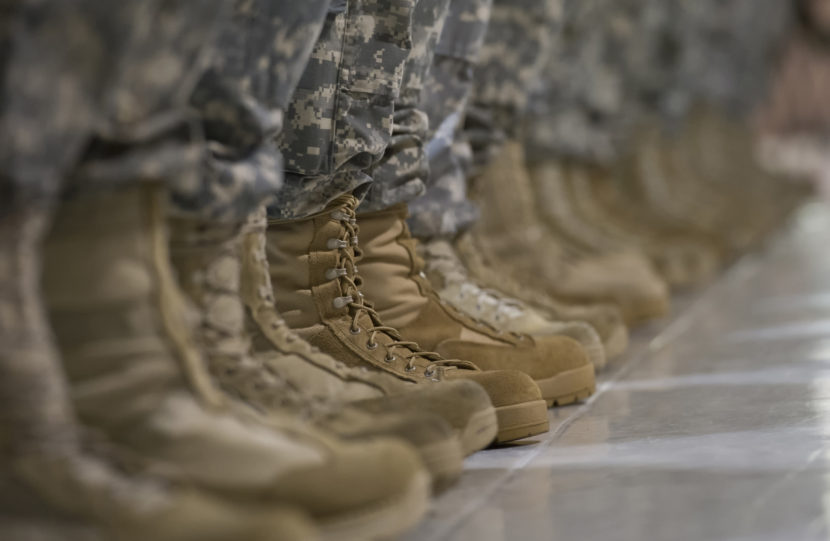
The Senate State Affairs Committee passed House Bill 126, aimed at strengthening the dated Alaska Code of Military Justice, on Thursday. It now moves on to the Senate Judiciary Committee.
“It’s almost like you guys have been frozen in time or something,” said Anchorage Republican Sen. Lesil McGuire at the committee hearing.
The bill would update the Alaska Military Code of Justice for the first time since 1955.
“It’s odd to me that there’s this living, breathing Alaska Statute that hasn’t been updated, it doesn’t really reflect on anything the (Alaska National) Guard is doing,” she said.
An investigation two years ago by the National Guard Bureau found no real recourse for cracking down on perpetrators after allegations of sexual assault and harassment within the Alaska National Guard were brought to light.
“They reported, in summary, that the current ability, the current code, the current ability and authority of commanders to impose discipline within the ranks was without teeth, or as I paraphrase, toothless,” said Col. Chris Weaver, the staff judge advocate to the adjutant general of the Alaska National Guard.
The goal of HB 126 is to add those teeth. It’s a point generally agreed upon by lawmakers and Guard officials alike.
What’s not universally agreed upon is exactly how new authority should be employed.
The final amendment to the bill discussed in the Senate State Affairs Committee illustrates the gap between the state and the Guard.
HB 126’s initial language would not have allowed a guard member to decline nonjudicial punishments, or NJPs. These are issued to reprimand minor offenses and carry less-severe penalties.
The amendment, which the Guard is against, would allow a guard member to decline NJP, in favor of a full court martial. Col. Weaver said it raises the stakes for the soldier.
“Now they’re exposed to potentially 6 months of confinement in a special court martial or up to a year of confinement for a general court martial,” Weaver said. “And they risk either a negative, a punitive discharge, which is either a bad conduct discharge or a dishonorable discharge, depending on what court hears that case.”
Despite the potential for more severe penalties, Weaver said a soldier might still choose to roll the dice because they know a court martial is expensive – and they are gambling that the Guard won’t want to spend the resources on a full proceeding for a minor infraction, so it could result in the charges being dismissed altogether.
If a service member accepts NJP the resulting punishment could be as minor as a dock in pay.
While Sen. McGuire said she understands the Guard’s point-of-view, she says it comes down to an issue of fairness and objectivity.
“I can see where it would affect morale positively if that person was truly guilty of what they were doing and corrective action were taken,” McGuire said. “So I see the positive side you’re talking about. On the negative would be that they are being unfairly targeted, that there’s a bias against them, that there’s a misunderstanding, or that they are truly innocent.”
The committee ultimately adopted the amendment, which means service members would be allowed to decline NJP to choose a court martial.
The committee passed HB 126 without objection. The bill’s next stop is the Senate Judiciary Committee.
